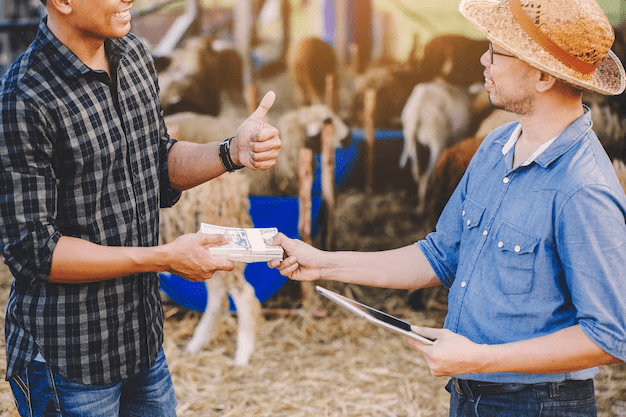Building a successful homestead requires thoughtful planning, especially when it comes to selecting the right animals. Every farm big or small benefits from livestock that can support productivity, sustainability, and long-term growth. Many new farmers look for animals that are easy to manage, provide good returns, and contribute to a balanced ecosystem. This guide explores how different animals fit into a working farm and provides helpful insights into making the best choice.
Farmers often share that starting small and choosing versatile animals can make the biggest difference. Whether someone is raising cattle for dairy, maintaining a small herd for breeding, or expanding into horses for labor and riding, each decision shapes the future of the farm. The key is to select animals that match the land, budget, and long-term goals.
Understanding What Makes a Good Farm Animal
A good farm animal adds value while being easy to care for. Some farmers prefer animals that offer multiple benefits like cattle that provide both milk and breeding potential. Others look for animals known for their gentle temperament or adaptability to different climates. No matter the choice, the goal remains the same: build a reliable, sustainable farm setup.
One important lesson many landowners learn is that the breed matters as much as the animal itself. A well-chosen breed can reduce expenses, improve output, and create consistency across the farm. For example, dairy-focused ranchers often choose breeds known for high butterfat milk production, while small farms might prefer cattle that require less feed and space.
Here are five key points farmers typically consider when selecting livestock:
- Temperament and manageability
- Feed efficiency and long-term cost
- Climate adaptability
- Purpose (dairy, meat, work, or mixed use)
- Health and longevity
Choosing Dairy Cattle for Long-Term Productivity
Many farmers aim to raise cattle that provide rich, nutritious milk while also being manageable on different types of farmland. One popular choice for homesteaders and dairy enthusiasts is the Guernsey breed. Known for its mild nature and golden-colored milk, it attracts those who want quality dairy results without complicated handling needs. Interested buyers often search for options like guernsey cow for sale to begin or expand their dairy journey.
These cattle are known for producing milk with high butterfat and protein content, ideal for making handcrafted butter or cheese. Their calm behavior and medium size make them easier to manage even for newcomers. Many ranchers appreciate that they perform well on grass-based diets, reducing the need for expensive feed.
Raising Small, Versatile Cattle for Compact Farms
For smaller farms or beginners who want to minimize feed costs while maximizing value, compact cattle breeds are often the preferred option. These breeds are easy to handle, require less grazing space, and can thrive in family-oriented environments. Among the many options available, Dexter cattle are well-known for fitting well into small-scale farms where efficiency matters.
Many farmers admire their dual-purpose nature they provide both milk and beef making them ideal for sustainable living. Those looking for breeding stock or starter animals often explore choices such as dexter cows for sale when planning their herd.
Dexter cattle also adapt well to varying weather conditions, which makes them practical for a wide range of regions. Their sturdy build and calm behavior further contribute to their popularity among homesteaders.
Expanding the Farm with Working Horses
Beyond cattle, many farms benefit from adding horses particularly strong, dependable breeds that can help with labor-intensive tasks. Draft horses, in particular, are valued for their strength and their ability to assist with plowing, hauling, and riding. Among draft breeds, the Shire horse stands out because of its remarkable size, power, and gentle nature.
People who work with Shire horses often praise their intelligence and loyalty. These horses are suitable for both work and recreational riding, making them versatile farm companions. Those seeking well-bred, high-quality options often look for a shire horse for sale when they want to add a reliable working partner to their land.
Shire horses have a long history of helping farmers with fieldwork, and even today, they remain a favorite for those who prefer traditional, sustainable farm practices. Their calm demeanor also makes them suitable for family environments.
Building a Balanced, Sustainable Farm
A successful farm doesn’t rely on one type of animal alone. Instead, it creates a balanced environment where each animal contributes to the overall productivity. Dairy cattle support milk production, smaller breeds offer flexibility, and working horses make daily labor manageable. Together, they form a system where the farm becomes more efficient and the work more rewarding.
Experienced farmers often say the real secret is matching the animals to the land. A spacious farm may support large dairy herds and draft horses, while a smaller homestead might thrive with compact cattle and fewer working animals. Regardless of size, every farm benefits from animals chosen with care and long-term planning.
Final Thoughts
Selecting livestock is one of the most important decisions for any new or growing farm. Each breed brings unique advantages, and understanding these qualities helps farmers build a productive and harmonious environment. With thoughtful planning, research, and the right choices, any landowner can create a thriving homestead that grows stronger year after year.





























